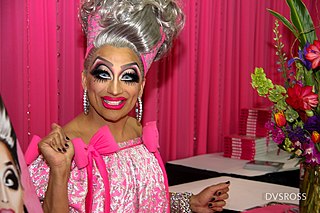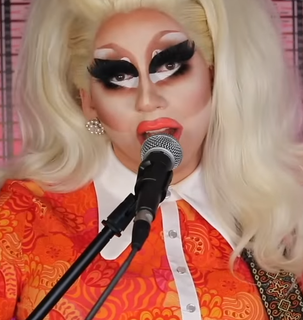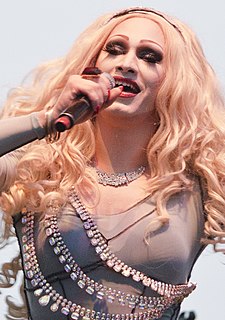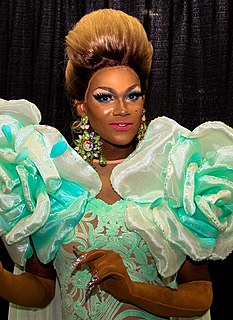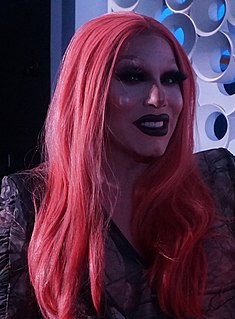A Quote by Bianca Del Rio
I think for many people, they think that being in drag means you want to be a girl. Being trans and doing drag is completely different.
Related Quotes
We love trans women; all of us know that drag wouldn't be an art form without trans women. I know that, RuPaul knows that, everybody in the gay community knows that. Trans women have always been a part of and the face of drag. And I can guarantee trans women will always be a part of 'RuPaul's Drag Race.'
I feel like I am just an entertainer. It does not matter what form I take to perform and entertain. I think I deserve being called a performer because you don't call Tyler Perry a drag queen. You don't call Will Smith a drag queen and all the other mainstream artists who use the aesthetic of drag to entertain.
